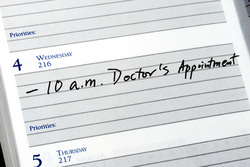 I love having lunch with Mary Ellen. We begin with cheese, crackers, veggies and dip while we kibitz about our lives. Mary Ellen was on the search committee that called me to the church. She is a retired English teach from the same high school that I attended. (I'm so grateful that I never had her as a teacher; I was a serious underachiever in my youth.) She sports a stylish short, platinum blonde haircut and she wears sandals well before Easter and well into the fall. She's been an elder for most of my time as a pastor, re-vamping the Outreach Team and working toward more encounters with hurting, broken people in the world. I'm deeply grateful for her skill set, her honesty, her heart and her ministry. After the cheese and crackers, she whips up her usual Caesar salad with shrimp. I hardly ever eat fish because Pete is allergic. She knows this and that's why she always makes me shrimp. She says a prayer for the meal, giving thanks for friendship and for lengthy lunches together. Amen. Mary Ellen knows loss. She is acquainted with sadness. I would even call her an expert on grief. She has buried three husbands and two best friends. She lost her mother to Alzheimer’s. She has also quilted together an incredible family from the broken pieces of three families. She loves them; and they love her. She is grandma in her own unique way while always honoring the other grandmothers involved. When Mary Ellen cries, her tears come in every color of grief. I have learned to stop dead in my tracks when she begins to cry. Her tears have shown me colors of the rainbow I did not know existed. One of her best friends that she watched die was also a member of my congregation, Jean. Jean was diagnosed with ALS. While Jean suffered, I often found myself at Mary Ellen's lunch table sharing wine and sadness. “Mary Ellen, how are you doing with Jean?” She gathers tears in her eyes, finds a tissue and says, “I don't know why I bother with mascara anymore.” After a pause and bite of shrimp, she tries to start again, “It's hard, it's really hard. She's suffered already with the breast cancer.” Sniffing, she finds her forceful voice to say, “And she fought hard, she won and look at this now. I can't bear to see her suffer like this.” I finish chewing and say, “How can I help you through this?” This afternoon, she began talking about her mother and the awful disease of Alzheimer's. “I thought it was the worst, until this happened to Jean. This must be the worst diagnosis.” She continues with, “I don't ever want to go through this. And I won't. I don't think I've told you this yet but I'm going to take my life if I ever get Alzheimer's disease.” Looking up from my salad I say, “I'm sorry; what?” “I might as well tell you now, Jean and I have spoken about suicide at length. We've even purchased this book. I will lend it to you when I finish. It's all about how to kill yourself. And did you know that none of the options are ever really secure. The author suggests that you always put a bag over your head just in case your first choice doesn't work.” I take a deep breath, put a smile on my face, pour another glass of wine and say, “Stop, just for a second.” She laughs with her wonderful chuckle, shaking her head at this youngster pastor who she has grown to love and need. “Start over. Jean wants to kill herself?” “Well, we've talked about it but I don't think she'll be able to do it. She's always been such a good, Christian girl. But we've been looking into which pills she is taking and how she could collect some on the side. The thing that makes me most mad is that there isn't assisted suicide in NJ. I told Jean, 'I love you but I'm not going to jail. You're going to have to do this on your own. I'll be there with you but I can't help you do it.” “What does Jean say to that? I ask. “She agrees and also laments that there is no assisted suicide in NJ. If there was, this would not be an issue. She would be able to talk to her physician about her wishes. The problem with ALS is that by the time it's too much for her to handle she won't be able to do it herself. She'll be too weak or she'll have lost the use of her arms or even her voice.” We pause and look at one another. Who gets to have these conversations in our culture? Clearly doctors don't. Families may. And if they're lucky – pastors get to have these conversations. My training would tell me that thoughts of suicide are signs of disease, severe signs of an unhealthy human being and that this conversation needs to be shared with a professional. After a second consideration, I realize that I am the professional with whom it is being shared. Don't get me wrong, I don't have delusions of grandeur and I “refer, refer, refer” all the time. This conversation was meant for her pastor; I am her pastor. So in all of my inexperience, I respond with these words, “well, I don't think that any of this should happen alone. I don't think anyone should die alone and I certainly don't think any of us should go to jail for helping someone die.” I don't know exactly what that's going to mean practically for Jean or for you. But when the day comes, if the day comes, I want to be there. I think your pastor should be there.” Jean wasn't able to take pills to end her life. Instead, she entered hospice care where a nurse administered doses of morphine. Mary Ellen laid beside her on the hospital bed. Along with others, I sat beside them. For now, the book about how to kill yourself is on a shelf.
1 Comment
 Most people go to the doctor once/year. For those dealing with chronic illnesses, doctors are practically part of our families. Our doctors know our weekly activities; they remember our kid's names. Take for example, our chiropractors... Dr. Mike and Dr. Heidi. I've gone to the chiropractor my whole life, not Pete. In the 2nd year of his diagnosis, he gave it a try. I'll never forget the first adjustment for him – he slept through the night. He couldn't remember the last time that happened. Sleeping for the chronically ill is currency. We assume with MS that his neurons have fired five times in order to make a complete circuit making it possible to do a simple task like move his right leg. Sleep is his friend. Sleep generates more energy. Sleep provides a reboot to his system. A full night of sleep = priceless. He goes to the chiropractor every week. I go every other. As a caregiver, I experience some stress... but still – every other week? Is that necessary? Physically – I'm not sure. Emotionally – without a doubt – completely necessary for me. It's one of the only times during my week where someone else cares for me. They look me in the eye and ask how I'm doing. They touch me, lovingly as a physician and companion on life's journey. They know a portion of my life better than anyone else. And they hold that knowledge in trust. One week, Pete was having a particularly bad week. He stumbled as he entered the waiting room. Dr. Mike took over. He helped Pete up. He got Pete started with treatment and then motioned to me to follow him. We were headed into their back coffee room. Having never been in there, I took in the sights of their personal space – nothing more than a closet really with a coffee maker, some mugs and a place for their stuff. I looked back at Mike and he asked, “How are you?” fully expecting an honest answer from me. I started to say “this kind of thing happens all the time. Pete gets tired. This has been a bad week. And he interrupted me and asked again, “but how are you?” I had been holding back tears probably for three days but here they come – I was determined to at least control the pace they would fall. While I was attempting to control my tears, he told me about his experiences with his dad who has parkinson's. He used words like frustrated, disappointed, exhausted. He asked if I was taking care of myself. While I appreciate this question, I often feel judged by it. If my answer is yes then I suppose that means that whoever asked thinks I look horrible or run down. If my answer is no, it's because I can't find the energy or time and then I feel like a failure. And yet when people ask, I'm am reminded that others think me caring for myself is important. That's nice. Truly. But a better question might be, “How can I offer you care? Not Pete – you?” So Mike asks, “Are you taking care of yourself?” I say, “Yes, I exercise, I do yoga, I read, I write, I cook. I have friends and... I come to the chiropractor.” He smiled and waved me out of the coffee room and into a treatment room saying, “Let's get at that then.” Lying face down on the table, I judiciously allowed my tears to leak out while Mike massaged knots out of my back and straightened me out again. Having cared for me, he grabbed my hands and lifted me back into my life as a caregiver. |
What is this blog about?These are some of the reflections that I am fashioning into a memoir about coming to peace with my husband's diagnosis of multiple sclerosis.
|



